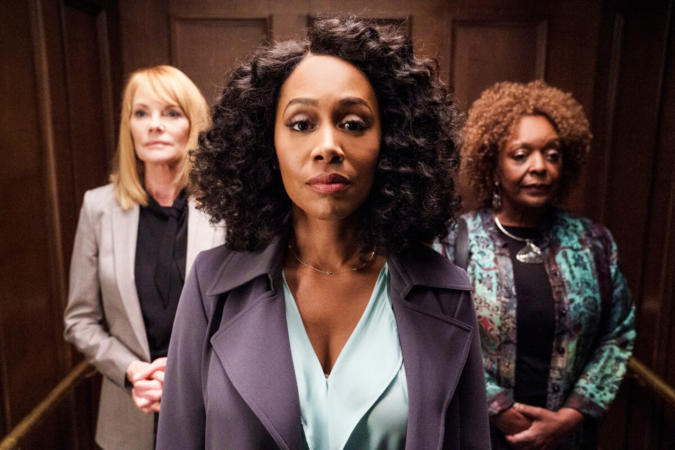Even though CBS’ All Rise, starring Simone Missick as Judge Lola Carmichael, started with lots of promise, several writers have now left the show citing issues with the series’ gender and race portrayals.
The New York Times reports five of the seven original writers, including three of the series’ leading writers of color, will not come back for a second season after arguing with showrunner Greg Spottiswood regarding depictions of minorities and gender.
One writer, Sleepy Hollow alumna Sherlnold Edwards, left All Rise in November, revealing that the writers “had to do so much behind the scenes to keep these scripts from being racist and offensive.” One episode mentioned by Edwards was written by white writer Greg Nelson featuring a Latinx gang antagonizing Los Angeleans with machetes. Lindsay Mendez, who plays Sara Castillo in the series, refused to act in the episode, and a Latinx writer called the script into question. The machete idea was axed after Spottiswood learned about Mendez’s refusal.
Another writer, Sunil Nayar, left after his concerns about the show’s portrayal of people of color and Black people, in particular, weren’t addressed. Nayar, who was the showrunner for ABC’s Revenge, said that Spottiswood “hired me to be his brown guy.”
Warner Bros.’ action to rectify All Rise was to keep Spottiswood as showrunner but pair him with a Black female corporate coach. A Warner Bros. representative told TVLine that their internal findings “did not reveal conduct that would warrant removing, Greg Spottiswood, from the Executive Producer role. Last December, David Makes Man showrunner Dee Harris Lawrence also came on board as a co-showrunner.
“We identified areas for improvement, and implemented procedures and protocols in response to the findings, which are resulting in the steps necessary to move forward with the series’ leadership in place,” they said.
Spottiswood also issued a statement, saying that he acknowledges “that I can have a rhetorical, professorial tone in the room, and that can be perceived by some as condescending and that I can be defensive in creative conversations and debates.” He said he remains “strongly committed” to improving his communication skills “and to being a more inclusive leader–ensuring that ensuring that writers and artists are not just heard, but feel listened to, respected, safe and valued.”
The case with All Rise backs up the findings Color of Change addressed in their study of TV procedurals, released this January. The study, Normalizing Injustice: The Dangerous Misrepresentations That Define Television’s Scripted Crime Genre, racial bias went mostly unexplored in popular procedurals, and people of color are usually cast as assailants instead of victims. Black characters, such as judges and lawyers, are also often used vehicles for white writers to justify the mistreatment of minorities within the story.
READ MORE:
New Study: Crime Shows Are A ‘PR Machine’ For Law Enforcement
Photo: CBS

